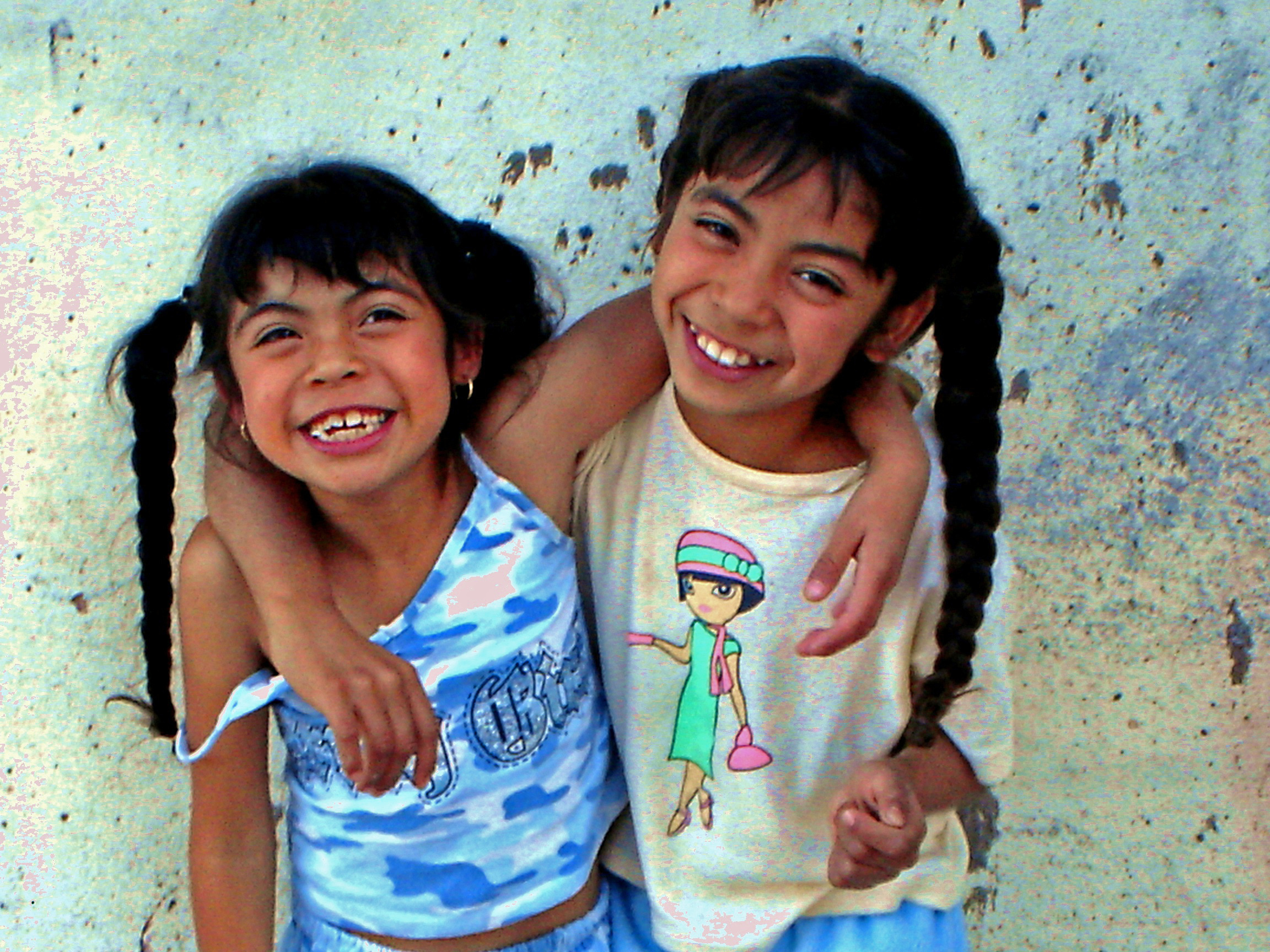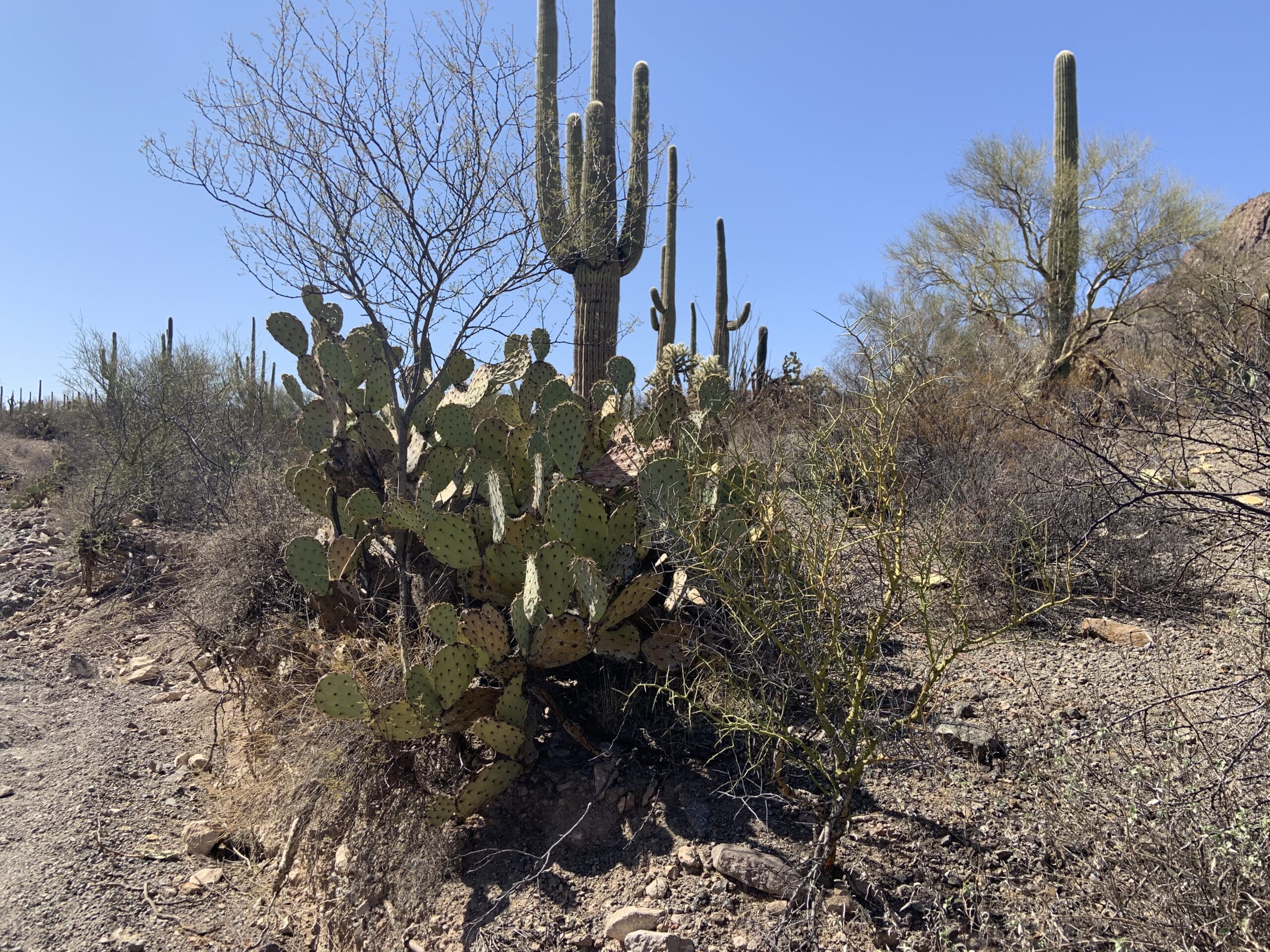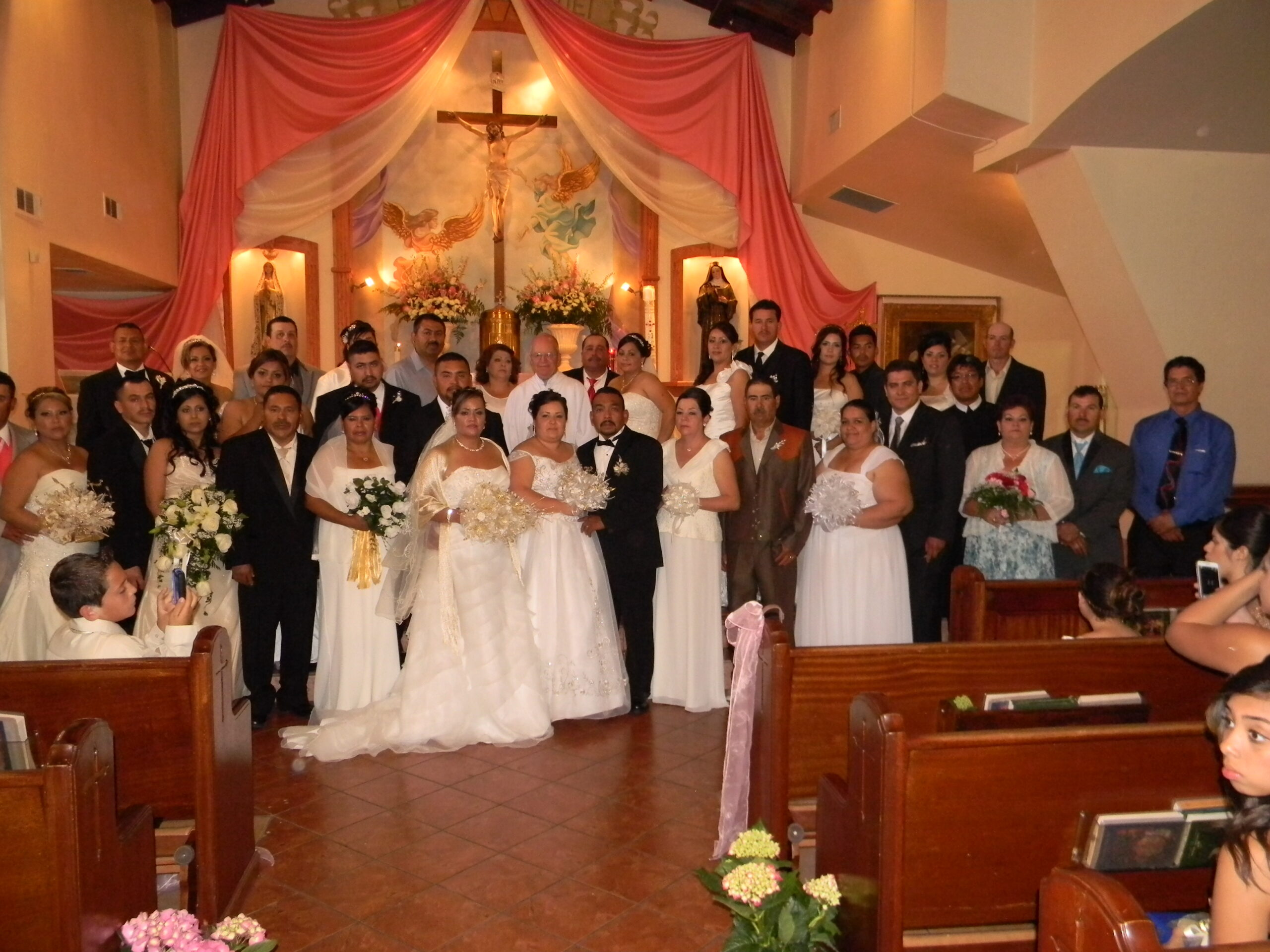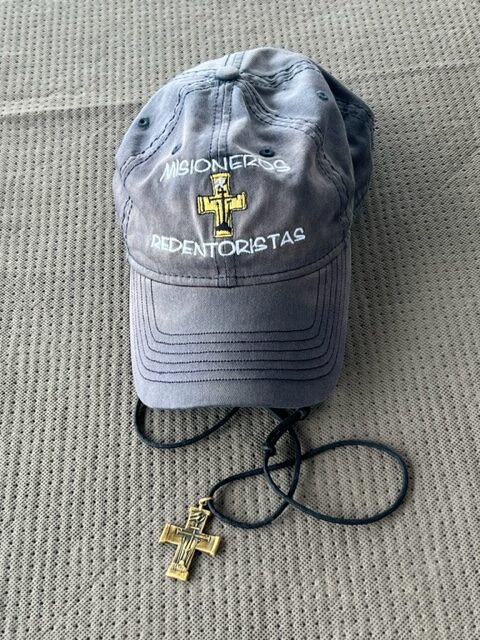Mi visita a Galeana, Michoacán – My visit to Galeana
(El blog de hoy está tomado de mi libro, Migrant Faith, escrito en 2013)
Mi visita a Galeana, Michoacán
Cuando tomé la fotografía arriba, las dos niñas me dijeron: “Usted no quiere nuestra foto, somos feas”. Les dije: “Tengo una cámara inteligente. Sólo saca fotografías de gente hermosa. Si toma su fotografía, entonces son hermosas”. Sí, tengo una cámara inteligente.
Cuando salí de Talpa, tuve que cambiar de estación de autobús en Guadalajara. En el camino, tuve una conversación interesante con Salvador, un taxista. Él trabajó en Los Ángeles, San Francisco y Las Vegas para pagar por la construcción de una casa para su mamá y para juntar $25,000 para pagar por un taxi y una licencia. Su intención no era quedarse en los Estados Unidos y por el racismo que sufrió, ansiaba el día en que podría volver. Odiaba vivir con el constante temor a “la Migra” o a que alguien lo reportara por envidia. Nunca cruzó por su mente la idea de quedarse en los Estados Unidos. Hace diez años regresó a México, compró su taxi y se casó. Recuerdo que me dijo: “Soy muy feliz en mi casa en México. No soy rico, pero tengo buen trabajo con mi taxi”.
Galeana, Michoacán
En Michoacán, yo quería ver los efectos de la migración en Galeana, un pueblo de 7,000 habitantes. Cuando llegué al pueblo de Puruándiro, fui a una pequeña tienda para llamarle a unos amigos en Galeana para pedirles que vinieran por mi. Mientras estaba en la tienda, el tendero me platicó sobre Galeana. Me dijo: “Galeana es conocido por su catolicismo y sus muchachas bonitas”.
Galeana se encuentra en un hermoso valle. La mayoría de las calles están pavimentadas y las casas son bien cuidadas y más modernas de lo que uno podría imaginar. Pero pronto es obvio que la belleza del pueblo se mantiene con dinero del Norte. La gente está orgullosa de su pueblo y hace todo lo posible para evitar que se convierta en un pueblo fantasma como muchos otros en México. Es un pueblo típico de la región, donde los jóvenes se van al Norte a buscar trabajo. Por muchos años los jóvenes de la comunidad se fueron al Norte a trabajar en las cosechas de la fruta y la verdura en California, Oregón y Washington. Ahora se van a Florida, Georgia y muchas otras partes de los Estados Unidos para trabajar en la agricultura y la construcción.
En la primaria católica de Galeana, les pregunté a los 150 niños: “¿Cuántos tienen un padre, hermano o hermana que trabaja en los Estados Unidos?” Todos menos dos niños alzaron la mano. La oportunidad de una educación es una de las mayores atracciones para irse al Norte. Recientemente construyeron una secundaria en el pueblo. No hay preparatoria. Cuando terminan la escuela, los jóvenes tienen que mudarse a un pueblo más grande o irse a los Estados Unidos para educarse y trabajar.
Al terminar mi estancia en México, me di cuenta de que Galeana era un pueblo poco usual. Una gran cantidad de su gente regresa a Galeana cada invierno. Muchos permanecen ahí por varios meses desde noviembre a marzo. Existe un cariño especial hacia este pueblo entre los que se han ido al Norte. La mayor parte de los que regresan y pueden entrar legalmente a los Estados Unidos obtuvieron su residencia durante el programa de amnistía a finales de la década de 1980. Otros han arreglado por medio de un padre o pariente. Algunos de los jóvenes nacieron en Estados Unidos mientras sus padres trabajaban en los campos agrícolas. Los que tienen documentos son los afortunados.
Aún así, hay muchos indocumentados que regresan cada noviembre. Regresan a su hogar cada año, aunque cruzar la frontera se ha puesto más difícil y peligroso. Toman el riesgo de no poder regresar a Estados Unidos porque quieren que sus familias permanezcan en su querida Galeana. La mayoría de los indocumentados que regresan cada año son hombres que están separados de sus esposas y de sus hijos ocho meses al año. Del primero de marzo al primero de noviembre, Galeana es un pueblo de mujeres, niños y personas mayores.
La desesperación en la comunidad de Galeana principalmente es producto de la grave falta de empleo y de oportunidad de educación y progreso para los niños. José Medina ha trabajado en la cosecha por más de veinte años en California, Oregón y Washington. Cuando lo conocí, su hija tenía siete años. Él había solicitado para la residencia de su esposa e hijos para vivir en Estados Unidos. Él dijo que prefería vivir en México y continuar yendo a los Estados Unidos para trabajar en la cosecha, pero su hija es muy inteligente y él quería que ella tuviera una oportunidad educativa que no podía lograr en el pueblo de Galeana. Si Galeana tuviera una preparatoria, José no tuviera que salir de su pueblo.
Otro hombre, Ramón, compartió que, al cruzar el desierto con unos amigos, unos bandidos los robaron y los golpearon. Un amigo quedó seriamente herido. Ramón y otros dos compañeros cargaron a su amigo todo un día intentando llegar a la carretera para pedir auxilio. Su amigo falleció menos de una milla antes de llegar a la carretera. El peligro al cruzar el desierto es muy real en este pueblo de Galeana. Dos hombres de este pueblo murieron en el desierto en 2006 y 2007. Aún así, la gente cruza el desierto cada año para buscar empleo en Estados Unidos por el bien de sus familias.
Mientras estaba en Galeana, supe que veintidós jóvenes salían el próximo lunes para los Estados Unidos. Cuatro de ellos tenían residencia legal o eran ciudadanos americanos. Los demás intentarían cruzar por el desierto. Al terminar la misa que celebré el domingo, invité a todos a rezar por la seguridad de los que salían al Norte. Simplemente recé por su seguridad e invité a los jóvenes que estaban presentes que pasaran al frente por una bendición. Después de la misa, una señora me dijo: “Padre, nuestros hombres se han estado yendo al Norte por muchos años y ésta es la primera vez que un sacerdote nos invita a rezar por ellos en misa. Y el sacerdote es un americano. Gracias”.
Los hombres que estuvieron en misa me invitaron a cenar con el grupo esa noche para bendecir a los demás. Esa noche, veinte de los hombres se juntaron en una casa. Todos se reunieron alrededor de una mesa grande. En la mesa había una botella de tequila y un montón de tamales. Los hombres que habían cruzado la frontera antes empezaron a contar sus experiencias. Las historias causaron mucha risa, pero también seriedad. Los hombres iban al Norte con la esperanza de encontrar trabajo, enviar dinero a su hogar para el cuidado de sus seres queridos y con la esperanza de poder regresar a Galeana. Se sentía una mezcla de ansiedad, emoción y temor. Lo más importante es que se sentía una esperanza que el temor no podía reprimir. La imagen que vi en estos hombres me recordó de los sacrificios de las familias al reunirse cuando una persona joven se va a la guerra en el servicio militar.
Le pregunté a la gente que cambios les agradarían en la realidad migratoria entre los Estados Unidos y México. Muchos padres dijeron: “Padre, lo único que queremos es que nuestros hijos crucen con bien”.
(Si tienes observaciones o preguntas para Padre Migrante, envían las a padremigrante@gmail.com)
(Today’s blog is taken from my book, Migrant Faith, written in 2013)
My visit to Galeana, Michoacan
When I took the picture above, the two girls told me, “You don’t want our pictures, we’re ugly.” I said, “I have a smart camera. It only takes pictures of beautiful people. If it takes your picture, then you are beautiful.” See, I do have a smart camera.
It was in 2007, I left Talpa de Allende, I had to change bus stations in Guadalajara. On the way, I had an interesting conversation with a taxi driver, Salvador. He worked in Los Angeles, San Francisco and Las Vegas to pay for the construction of a house for his mother and to raise $25,000 to pay for a taxi and license. He did not intend to stay in the U.S. and because of the racism he experienced, he could not wait for the day he could leave. He hated being in constant fear of La Migra or of someone getting jealous and reporting him. The idea of staying in the U.S. never crossed his mind. Ten years ago, he returned to Mexico, bought his taxi and married. He said, “I am very happy at home in Mexico. I am not rich, but I have good work with my taxi.”
Galeana, Michoacán
In Michoacán I wanted to see the effects of migration on Galeana, a town of 7,000 people. When I arrived in the town of Puruándiro, I went to a small convenience store to make a phone call to friends in Galeana so that they could come for me. While in the store, the manager told me about Galeana. He said, “Galeana is known for its Catholicism and pretty girls.”
Galeana is situated in a beautiful valley. The streets are mostly paved, and the houses are more modern and beautifully cared for than one might have expected. Yet soon it is obvious that the town’s beauty is maintained by money from el Norte (the north). The people are proud of their town and work hard to keep their town from becoming a ghost town as can be found in other parts of Mexico. It is a town typical of its region, with its young people going North to find work. For many years young men from the community went North to work in the fruit and vegetable harvests of California, Oregon and Washington. Today they may be headed to Florida, Georgia and many other parts of the U.S. to work in agriculture and in construction.
In the Catholic grade school of Galeana, I asked the 150 children, “How many have a parent, brother or sister working in the United States?” All but two children raised their hand. The opportunity for education is one of the greatest pulls on families in this community to move to el Norte. Only recently a junior high school was built in the town. There is no high school. When young people finish school, they either have to move to a larger city or go to the U.S. for both education and work.
By the end of my time in Mexico, I found Galeana to be an unusual rural Mexican town. A significant number of its people return to Galeana each winter. Many stay for several months from November to March. There is a special love for this town among those who have gone North. Most of those who return and have legal entry into the U.S. gained their residency during the Amnesty program of the late 1980’s. Some have been regularized through a parent or relative. Some of the youth were born in the U.S. while their parents worked in the fields. Those who are documented are the lucky ones.
Still, there are many who are undocumented who return every November. They come home each year even though the border has become more difficult and dangerous. They take the risk of not being able to reenter the U.S. because they want their families to remain in their beloved Galeana. Most of the undocumented who return each year are men who are separated from their wives and children eight months of the year. From March first to November first, Galeana is a town of women, children and the elderly.
The forces of desperation in the community come primarily from a desperate lack of employment and opportunity for education and advancement of the children. Jose Medina has worked in harvests for over twenty years in California, Oregon and Washington. His daughter was seven years old. He applied for residence for his wife and children to live in the U.S. He said that he would rather live in Mexico and continue to go to the U.S. for seasonal work, but his daughter is a bright student, and he wants her to have an opportunity for education that she could not realize in the town. If the town had a high school, he would not leave his hometown.
Another man, Ramón, told his story of crossing the desert with his friends, and being robbed and beaten by bandits. One friend was seriously injured in the beating. Ramón and two others carried the man for a day trying to get to a highway for help. Their friend died less than a mile from the highway. The peril of crossing the desert is very real in this town as two from this town died in the desert in 2006 and 2007. Still, people make the crossing each year to seek work for the sake of their families.
While staying in Galeana, I heard that twenty-two young men were leaving on Monday to cross into the U.S. Four of the men had legal entry as residents or as U.S. citizens. The others would attempt to make the crossing through the desert. At the close of the Mass that I celebrated on Sunday, I invited everyone to pray for the safety of those heading for el Norte. I simply prayed for their safety and invited those present to come forward for a blessing. After the Mass one woman said, “Padre, our men have been going north for many years and this was the first time a priest invited us to pray for them at Mass. And the priest is an American. Thank you.”
The men at the Mass invited me to have dinner with the group in the evening and to bless the others. That evening, twenty of the men gathered at one home. All gathered around a large table. On the table were a bottle of Tequila and a mountain of tamales. The men who had crossed the border before began telling their stories of crossing. The stories brought many laughs, yet there was seriousness about the gathering. They were heading north with the hope of finding work, sending money home to take care of their loved ones, and the hope of being able to return to their home in Galeana. There was a sense of anxiousness, excitement and fear. Most importantly, there was a sense of hope that fear could not suppress. The image that I saw in these young men reminded me of the sacrifices of families gathering as a young person goes off to war in the military.
I asked people what they wanted changed in the migration reality between the U.S. and Mexico. Many parents said, “Father, all we want is safe passage for our children.”
(If you want Padre Migrante to respond to your concerns or questions, write to: padremigrante@gmail.com)
Oh Jesús, tú nos llamas: “Síganme”. Bendice, Señor, a todos los que acogen tu llamado. Puede que el camino no sea fácil, pero tenemos la confianza de que todo es posible si caminamos contigo. Que este viaje nos abra los ojos a las maravillas de tu amor por nosotros. Oramos por toda tu gente, por todos los creyentes e incrédulos, por los líderes y seguidores. Oramos por la sanación, el perdón, la compasión, la justicia y la paz. Oramos para que, al seguirte, nosotros también podamos ser pescadores de hombres. Bendícenos en nuestro viaje.
O Jesus, you call us, “Come after me.” Bless, O Lord, all who welcome your call. The path may not be easy, but we have confidence that all things are possible if we walk with you. May this journey, open our eyes to the wonders of your love for us. We pray for all your people, for all believers and unbelievers, for leaders and followers. We pray for healing, for forgiveness, for compassion, for justice, for peace. We pray that as we follow you, we too can be fishers of men. Bless us on our journey.




